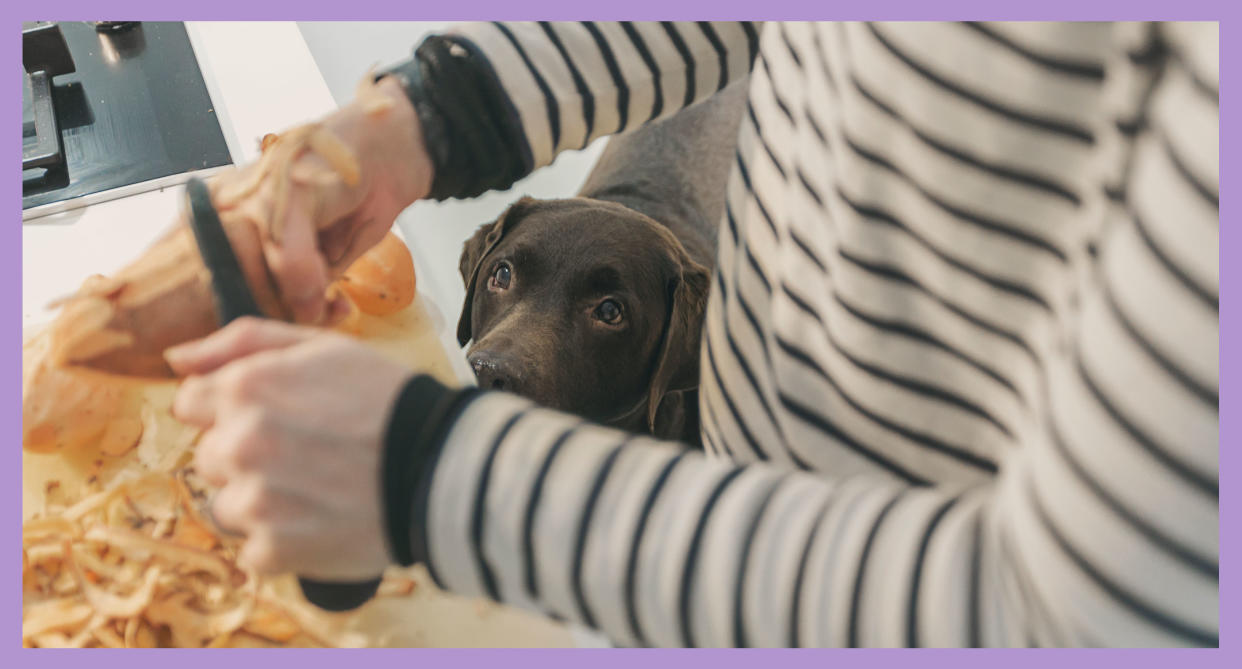Why you should stop pushing your vegan diet on your pet

Are you trying keto or sticking to a strict vegan diet? Perhaps the whole family went gluten-free to support a family member struggling with an intolerance, and you’re thinking you should get your dog or cat on the program as well. But, before you start your pet on a new trendy diet that’s making you feel great, it’s important to ask: Does this diet reflect what I want, or what my pet actually needs?
Take stock of why you’re considering changing your pet’s diet
Have you discussed a diet change with your veterinarian, or is this just something you’re considering? Does your pet’s health indicate something’s wrong and you’re hoping a trendy diet might help? Think again.
Hyunmin Kim, DVM, veterinary staff manager, Community Medicine of the American Society for the Prevention of Cruelty to Animals, is very clear about her thoughts here, saying “I would definitely recommend not trying that unless this is specifically recommended by your veterinarian.”
“No. The answer is no,” says Lisa M. Freeman, DVM, board certified veterinary nutritionist and professor at Tufts University. “And I think people are turning to a lot of foods that might be very popular in human nutrition, whether that's gluten-free or vegetarian or vegan diets. And it's important to know whether these can have any positive effects but also negative effects on your pet.”
Can my pet go vegan or vegetarian?
A love of animals may extend into a vegetarian (animal free) or vegan (animal and animal by-product free) diet, and many have explored vegetarian and vegan food options for animals, but there is no health benefit to the animals, and it’s very unsafe.
“I'm a vegetarian myself for 30 years. And I can say very confidently it is very unsafe to feed vegetarian or vegan diets to your pets,” says Freeman. “There is no health benefit to doing except in very specific cases in dogs with certain specific diseases. There might be a small number of situations where we might use it in a dog with a medical condition, but otherwise there is no health benefit.”
As red meat has been linked to heart disease in humans, one could wonder if cutting back on meat might be for your companions heart. That’s simply not the case, notes Freeman.
“One of the reasons a person might eat a vegetarian diet is to reduce the risk for heart disease. We know the main heart disease in people is coronary artery disease or atherosclerosis,” she explains. “Dogs and cats don't get that disease. So eating a vegetarian diet or a low fat diet has no benefit for that particular disease and a vegetarian or vegan diet can increase the risk of other heart diseases in dogs and certainly in cats. So it's really important not to take information from human nutrition and carry that over to our pets.”
What about a gluten-free diet for pets?
For people who can’t tolerate gluten, such as those with celiac disease, or a sensitivity to gluten, a diet devoid of wheat, rye and barley can be life-changing. And for those who feel the positive impact of removing gluten from their day-to-day diet, which can include an energy boost for some, it may seem tempted to do the same for their cat or dog. But the reality is, our pets bodies work differently than ours.
“Animals tend to not have problems with gluten the same way people do,” explains Kim. “When animals have some kind of GI allergy, it's actually usually more the protein aspect of it, so they're more allergic to beef, chicken and other proteins that are more commonly found in your average generic dog or cat food than the gluten portion of it. So I would definitely steer away from the new fad diets or a gluten free diet.
It’s simple — these diets aren’t good for your pets — period. Speak with your veterinarian before even considering a major diet change, as it could save your animal’s life.


